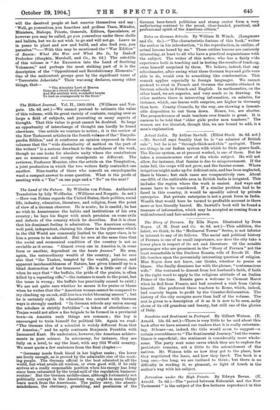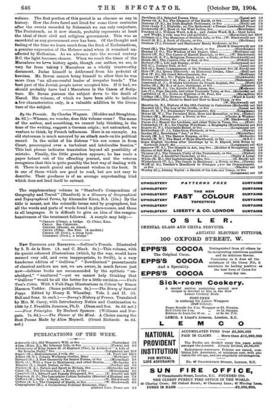volume. The first portion of this period is as obscure
as any in history. How the Jews fared and lived for some three centuries after the events recorded by Nehemiah wo can only conjecture. The Pentateuch, as it now stands, probably represents at least the ideal of their civil and religious government. This was as sacerdotal as any government ever has been. Of the thought and feeling of the time we learn much from the Book of Eeclesiasticus, a genuine expression of the Hebrew mind when it remained un- affected by Hellenism. As we advance into the second century B.C. the light becomes clearer. When we reach the times of the Maccabees we hr-''re history again, though our author, we see, is very far from taking 1 Maccabees as a wholly trustworthy document. Judas himself is dethroned from his pedestal of heroism. Mr. Bevan cannot bring himself to allow that he was more than "an all-successful leader of irregular bands." The best part of the Jewish people never accepted him. If it had, we should probably have had 1 Maccabees in the Canon of Scrip- ture. Mr. Bevan pursues the subject down to the death of Herod. His volume, of which we have been able to indicate a few characteristics only, is a valuable addition to the litera- ture of the subject.



















































 Previous page
Previous page